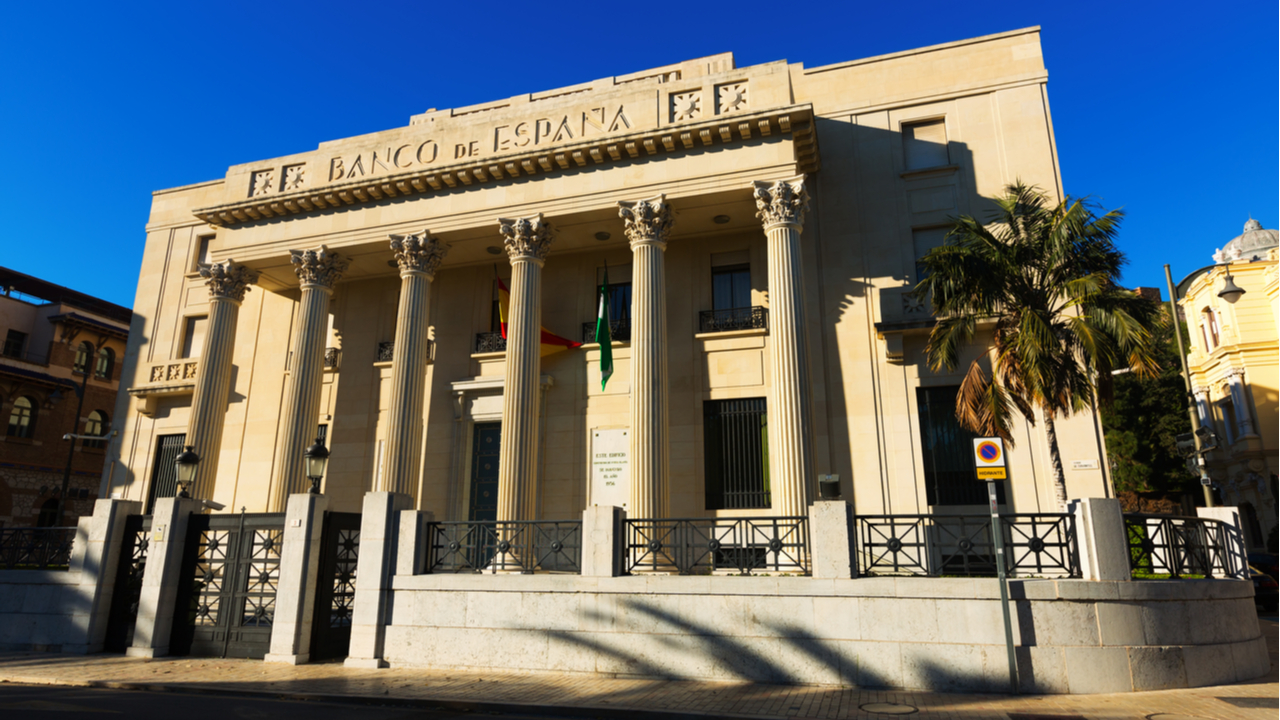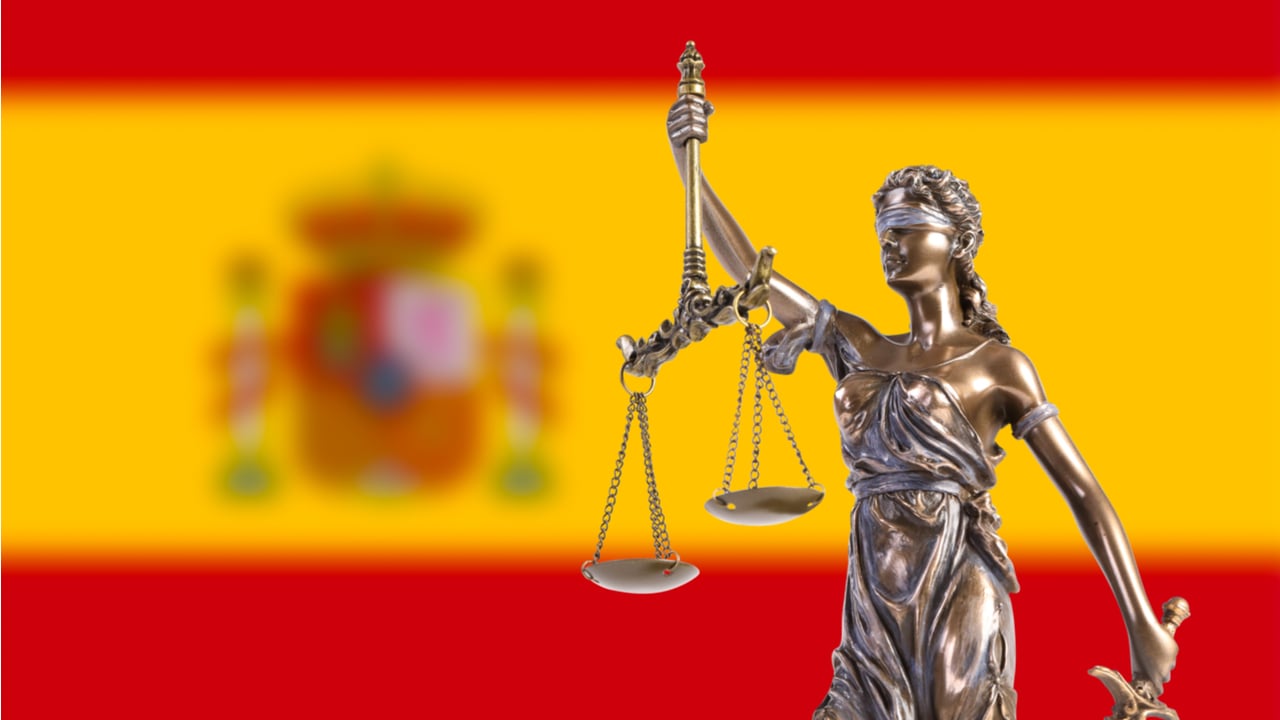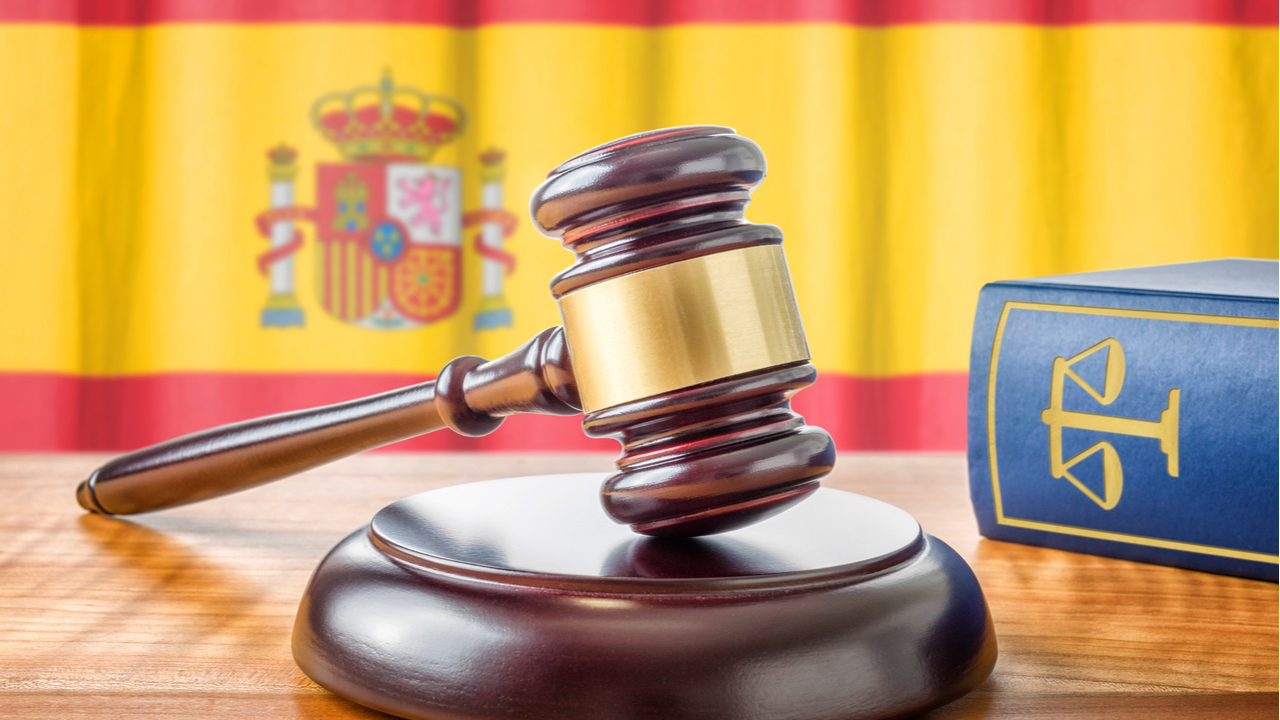 The CNMV, the Spanish securities regulator, has called for large search engines and social networks to stop offering advertising services for platforms that are not registered to offer investment or financial services. The regulator has also stated that it will take matters into its own hands by promoting regulation on the issue if these companies […]
The CNMV, the Spanish securities regulator, has called for large search engines and social networks to stop offering advertising services for platforms that are not registered to offer investment or financial services. The regulator has also stated that it will take matters into its own hands by promoting regulation on the issue if these companies […] The deputy governor of the Bank of Spain, Margarita Delgado, gave her opinion about cryptocurrencies and how they are increasing the risks in today’s economy. At an event hosted by PWC called “A climate of change,” Delgado explained that the continued and extended use of cryptocurrencies might bring different kinds of risks to the 12% […]
The deputy governor of the Bank of Spain, Margarita Delgado, gave her opinion about cryptocurrencies and how they are increasing the risks in today’s economy. At an event hosted by PWC called “A climate of change,” Delgado explained that the continued and extended use of cryptocurrencies might bring different kinds of risks to the 12% […] El Corte Ingles, one of the biggest retailers and distributors in Spain, has taken its first step into the cryptocurrency world. The company is reportedly launching its own cryptocurrency exchange for customers of its stores. The firm has enrolled the help of Deloitte to build a new platform that will allow its customers to access […]
El Corte Ingles, one of the biggest retailers and distributors in Spain, has taken its first step into the cryptocurrency world. The company is reportedly launching its own cryptocurrency exchange for customers of its stores. The firm has enrolled the help of Deloitte to build a new platform that will allow its customers to access […] Spain’s Ministry of Treasury has admitted that Spanish citizens are not forced by law to declare their cryptocurrency holdings under the disputed Model 720, which involves declaring funds held abroad. While the antifraud law approved last year established this duty, there are still no rules regarding cryptocurrency after Model 720 was declared to be illegal […]
Spain’s Ministry of Treasury has admitted that Spanish citizens are not forced by law to declare their cryptocurrency holdings under the disputed Model 720, which involves declaring funds held abroad. While the antifraud law approved last year established this duty, there are still no rules regarding cryptocurrency after Model 720 was declared to be illegal […] The Spanish ombudsman has been receiving complaints about cryptocurrency and how some Spanish citizens investing in these vehicles have lost everything. In his annual report, Angel Gabilondo recognized the rise of cryptocurrencies as a new problem due to the little or no regulation crypto sees in the country. In the same way, the EU has […]
The Spanish ombudsman has been receiving complaints about cryptocurrency and how some Spanish citizens investing in these vehicles have lost everything. In his annual report, Angel Gabilondo recognized the rise of cryptocurrencies as a new problem due to the little or no regulation crypto sees in the country. In the same way, the EU has […] The Bank of Spain, the central bank of the country, has recognized the first cryptocurrency platform that will be able to operate and provide officially approved services in the country. The first exchange to receive this approval was Bit2me, which is now approved to act as a virtual asset service provider (VASP). While this is […]
The Bank of Spain, the central bank of the country, has recognized the first cryptocurrency platform that will be able to operate and provide officially approved services in the country. The first exchange to receive this approval was Bit2me, which is now approved to act as a virtual asset service provider (VASP). While this is […]
Development of the Spanish blockchain and cryptocurrency industries continued apace in 2021.
In Spain, companies across various industries — not just digital finance — have begun to apply blockchain technology to their operations. This disruptive technology has promoted pioneering projects in the country that are expected to add 20 billion euros to Spanish gross domestic product by 2030.
As expectations around this technology increased in Spain throughout 2021, so did investment, hype and concerns regarding the stability and regulation of digital assets.
Here, we will take a look at some of the most notable developments in the Spanish cryptocurrency and blockchain ecosystems throughout 2021.
The Central Bank of Spain together with the National Securities Market Commission issued a statement in February 2021 warning citizens about the risks of cryptocurrencies as an investment.
The statement noted that there is still no regulatory framework in the European Union to regulate cryptocurrencies, nor does it provide guarantees and safeguards similar to those available for other financial products like stocks and bonds.
As part of the effort to regulate and keep digital currencies operations under scrutiny, at the beginning of July, the Spanish Ministry of Finance announced the “law to prevent and fight against tax fraud.”
Herein, the Treasury will require the declaration of income tax and digital currency assets, as well as reporting payments and collections made with cryptocurrencies.
Local media then reported that “this regulation introduces an obligation to provide information on the balances held by the holders of virtual currencies and on the operations in which they are involved. This same obligation extends to those who make initial offers of new virtual currencies.”
In May, the Secretary General of the Treasury and International Financing published a resolution that included a list of the first projects admitted to the Spanish Regulatory Sandbox.
The sandbox will allow a select group of companies to test new business models in a closed environment, overseen by the Bank of Spain, the General Directorate of Insurance and Pension Funds and the National Commission of Markets and Securities.
In July, Juan Berenguer, the mayor of El Campello — a town in the Eastern Costa Blanca in Valencia — reported that the municipality has been chosen to host a local digital currency project, complementary to the digital euro, in order to study how such a change to currency in the Eurozone would “be accepted by society.”
The initiative also aims to determine how both public and private jurisdictions can participate in the design, research and testing of a central bank digital currency.
The city of Zamora, the capital of the eponymous province in northwest Spain, hosted an online workshop devoted to the development of blockchain technology and cryptocurrencies.
The event titled “Discover the secrets of blockchain and cryptocurrencies and how to apply them in your company” and hosted by the Zamora Chamber of Commerce was aimed at small and medium-sized companies with payrolls of less than 10 workers “who wish to improve their digital marketing strategy.”
Outside of finance, blockchain saw innovative applications in civil and administrative contexts.
In February, over 2,000 people in Catalonia participated in a poll conducted using blockchain technology. The initiative was developed through the Vocdoni digital platform which allowed results to be calculated minutes after the polls closed.
In the educational field, the University of Murcia announced that it will issue certificates in blockchain through Blockcerts.
The Spanish university issued blockchain certificates to the attendees of the Crue-TIC 2021/2022 “Disruptive Technologies by the Digital University” conference, where participants discussed the applications of artificial intelligence, data analytics and big data, blockchain, cloud tech and 5G.
A Spanish project that uses blockchain technology was a finalist in the European Digital Mindset Awards in the “Best Digital Accelerator in the Public Sector” category.
Endesa’s electricity-focused blockchain project Confía conducted a pilot in collaboration with the Malaga City Council and the University of Malaga.
Spanish startup 1MillionBot developed a blockchain-supported virtual assistant for COVID-19 vaccinations.
Toward the end of the year, the blockchain center of Catalonia announced that it will launch Carvers, a Catalan metaverse. The new monolingual metaverse seeks to promote the Catalan language and culture on the internet.
 The Spanish treasury ministry has announced it will postpone the establishment of the complete framework for declaring taxes related to cryptocurrency assets until 2023. While the Spanish government has advanced when it comes to cryptocurrency regulation, the specifics of what will be taxed and in which way are still a mystery for traders and holders. […]
The Spanish treasury ministry has announced it will postpone the establishment of the complete framework for declaring taxes related to cryptocurrency assets until 2023. While the Spanish government has advanced when it comes to cryptocurrency regulation, the specifics of what will be taxed and in which way are still a mystery for traders and holders. […]
Intensified scrutiny of digital asset ads is a growing trend, but it's not clear if it is inextricable from crypto regulation’s evolution.
Over the last week, regulators in three major jurisdictions across two continents introduced new rules governing cryptocurrency-related promotions and advertisements. Citing consumer risks associated with digital asset investments, authorities in the United Kingdom, Singapore and Spain tightened the requirements around crypto firms’ marketing messaging and customer recruitment practices. While some experts view this emerging trend as a sign of a new global phase of cryptocurrency regulation, questions about the efficiency and universal applicability of this approach persist.
In the United Kingdom, Her Majesty’s Treasury issued a report summarizing the results of a public consultation on crypto-asset promotions, published in July 2020, as well as the government’s further steps in bringing such promotions within the regulatory perimeter. The key takeaway here is that crypto-related marketing messages are to be included in the scope of the Financial Promotion Order, meaning that the same rules will apply to them as those governing promotions of traditional financial products.
The National Securities Market Commission, Spain’s chief securities regulator, announced a new set of requirements that will apply to digital asset firms targeting 100,000 people or more with their ads, as well as those relying on social media influencers to promote their products and services.
In both the U.K. and Spain, regulators will require crypto promotions to abide by the principles of clarity and fairness while also prominently featuring risk disclosures. Ads’ sponsors will also have to either seek pre-approval (U.K.) or notify the authorities (Spain) of the upcoming campaigns.
The guidelines issued by the Monetary Authority of Singapore feature even more severe limitations. Essentially, the regulator will allow digital asset service providers to advertise solely on their own platforms, while physical ads in public spaces or using third parties such as social media influencers are entirely off limits.
Up until recently, regulators largely afforded crypto firms a wide latitude as far as promotional activity was concerned. If anything, it was big tech firms that experimented with censoring crypto-related ads on their platforms. Now, financial regulators are moving into the front seat.
Nathan Catania, partner at digital asset firm XReg Consulting, sees this development as a sign of a shifting regulatory landscape. Catania commented to Cointelegraph:
Jurisdictions that have ironed out AML/CFT regimes are now looking at other prominent crypto risks and it is clear that consumer protection is high on the agenda. Many large crypto players have been ramping up advertising campaigns in the last year or so and this is drawing the attention of policymakers and regulators who will want to ensure that these adverts are not misleading consumers.
In an XReg’s report on the topic, Catania and his colleagues further argue that the crypto industry players “can expect regulatory authorities in other countries to follow suit in the coming months,” noting that the wave of restrictions on crypto promotions can represent the “second phase of crypto asset regulation,” focused on consumer protection.
Indeed, one way to look at the intensifying regulatory attention to digital asset promotions is that there exists a logical sequence of measures to which governments assign varying levels of priority. Another interpretation seems feasible as well, whereby authorities simply react to an emerging reality, regardless of whether they consider the more fundamental regulatory boxes successfully checked.
Naturally, the growth and mainstreaming of the digital asset space in recent years resulted in crypto businesses expanding their outreach to audiences far beyond the original core of the movement. While the exact numbers are difficult to pin down, it is clear that in the past year the volume of crypto ads across many countries and platforms — from Indian TV to London’s public transport — has massively increased.
In the light of these dynamics, as regulators’ thinking goes, it is likely that people with insufficient understanding of crypto as an asset class will get exposed to bad-faith promotional messages. Some of them could then be tempted to invest or otherwise participate in digital finance without being fully aware of the risks.
Reliable data on the effects of the new restrictions on crypto promotions is unlikely to appear anytime soon, and at this point it is impossible to tell whether it will have major effects on people’s financial wellbeing or crypto companies’ bottom line.
Changpeng Zhao, CEO of crypto exchange Binance CEO, opined that the growing trend will not affect the demand for digital asset products because word of mouth is the primary marketing tool in this space.
It is also not warranted that the regulatory concern for cryptocurrency promotions will be equally distributed geographically. For one, in the United States, there are currently few signs of crypto ads being in government watchdogs’ crosshairs.
Raul Garcia, financial services principal at Florida-based accounting services firm Kaufman Rossin, noted to Cointelegraph that in the United States, regulatory focus is on taxation and investor protection, whereas promotional messages remain outside of the scope of the authorities’ attention. Garcia commented:
Everywhere you look in the U.S. there’s something about crypto, they’re advertising […] And I really don’t see any strong resistance, any limit to crypto promotion or anything like that. Too much money to be made!
The difference between the jurisdictions ramping up cryptocurrency ads oversight and the U.S. can be attributed to the heightened focus on consumer protection characteristic of many European nations and Singapore versus the American free-market focus. All other regulatory considerations held equal, more relaxed rules for digital asset promotions could make the U.S. a more attractive destination for crypto companies in the future.

As the Federal reserve releases its position paper on CBDCs, the Russian Central Bank instigates yet another crypto ban scare.
Last week, two central banks dropped public reports that can have a sizable impact on the crypto landscape in their respective countries and beyond. The U.S. Federal Reserve published a discussion paper entitled “Money and Payments: The U.S. Dollar in the Age of Digital Transformation,” which summarizes years of the Fed’s research on CBDCs. Meanwhile, the Central Bank of Russia released a report that called for a blanket ban on domestic cryptocurrency operations and mining. Both documents are framed as an invitation for public discussion, but the kinds of discussions that they will trigger are likely to be very different.
Below is the concise version of the latest “Law Decoded” newsletter. For the full breakdown of policy developments over the last week, register for the full newsletter below.
The authors of the Fed’s much-anticipated report make a point to note on several occasions that the paper “is not intended to advance any specific policy outcome.” Indeed, the report gives off a vibe of open-endedness and covers both risks and benefits of a potential U.S. CBDC. Specifically, it acknowledges user privacy concerns that some crypto advocates have previously voiced in the context of the potential digital dollar’s design.
On Twitter, crypto-friendly members of the U.S. Senate sounded content with the document’s findings and framing. Senator Cynthia Lummis welcomed the report’s concession that the ultimate fate of the U.S. CBDC project rests with Congress:
I’m pleased the Federal Reserve released their long-awaited report on central bank digital currencies this afternoon. Here’s a quick thread of my thoughts.https://t.co/UAJFIPwiqG
— Senator Cynthia Lummis (@SenLummis) January 20, 2022
Senator Pat Toomey called the paper a constructive contribution to the public discussion around the issuance of a CBDC.
Cryptocurrencies, digital assets, and their underlying technologies offer tremendous potential benefits. As such, I’m glad the @federalreserve has constructively contributed to the necessary ongoing public discussion regarding the issuance of a CBDC. https://t.co/10ld3lfXt6
— Senator Pat Toomey (@SenToomey) January 20, 2022
In contrast to their U.S. counterparts, Russian central bankers are very much advocating for a particular policy. They’ve suggested that investor safety and financial stability risks that cryptocurrencies pose warrant a complete ban of domestic crypto operations and mining activity, as well as introducing punishments for individuals breaching these rules. Notably, the proposed ban specifically concerns the usage of domestic financial infrastructure for crypto transactions, and during a press conference that followed the report’s publication, a Central Bank of Russia official suggested that Russian citizens would still be allowed to engage with crypto using overseas rails.
The report is remarkable for making some candid points as to why the ban is needed. For one, the authors recognize that emerging economies, including Russia’s, are more susceptible to the adverse effects of crypto compared to those of developed nations. Furthermore, it states that wide adoption of crypto could undermine Russia’s monetary sovereignty and be at odds with a potential sovereign CBDC that the report passingly praises.
In a series of moves that almost looked coordinated, regulators in the United Kingdom, Spain and Singapore took on cryptocurrency promotions and ads last week. While the first two mainly focused on ensuring appropriate risk disclosures, Singapore opted for a stricter stance of outlawing any and all crypto-related advertisements in public spaces. Binance CEO Changpeng Zhao questioned the capacity of these measures to limit crypto demand because of the prevalence of word-of-mouth marketing in the digital asset space.
Such a shift of focus could mark the next step in the evolution of crypto regulation. Jurisdictions that have put comprehensive AML and CFT rules in place are now turning to consumer protection measures as the rapid mainstreaming of digital assets gives rise to marketing strategies that target mass audiences far beyond the tech-savvy core of early crypto adopters.